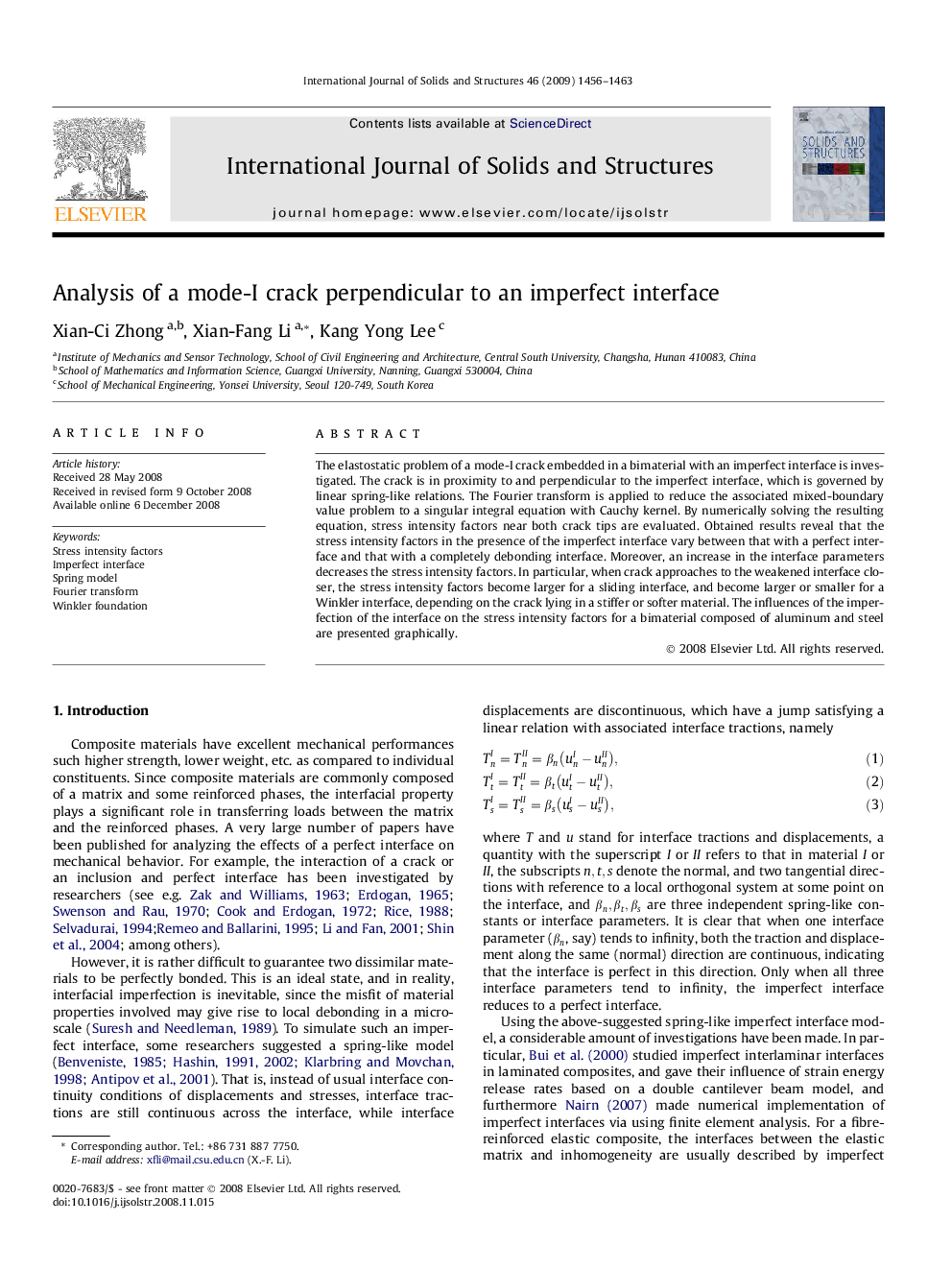| Article ID | Journal | Published Year | Pages | File Type |
|---|---|---|---|---|
| 279338 | International Journal of Solids and Structures | 2009 | 8 Pages |
The elastostatic problem of a mode-I crack embedded in a bimaterial with an imperfect interface is investigated. The crack is in proximity to and perpendicular to the imperfect interface, which is governed by linear spring-like relations. The Fourier transform is applied to reduce the associated mixed-boundary value problem to a singular integral equation with Cauchy kernel. By numerically solving the resulting equation, stress intensity factors near both crack tips are evaluated. Obtained results reveal that the stress intensity factors in the presence of the imperfect interface vary between that with a perfect interface and that with a completely debonding interface. Moreover, an increase in the interface parameters decreases the stress intensity factors. In particular, when crack approaches to the weakened interface closer, the stress intensity factors become larger for a sliding interface, and become larger or smaller for a Winkler interface, depending on the crack lying in a stiffer or softer material. The influences of the imperfection of the interface on the stress intensity factors for a bimaterial composed of aluminum and steel are presented graphically.
